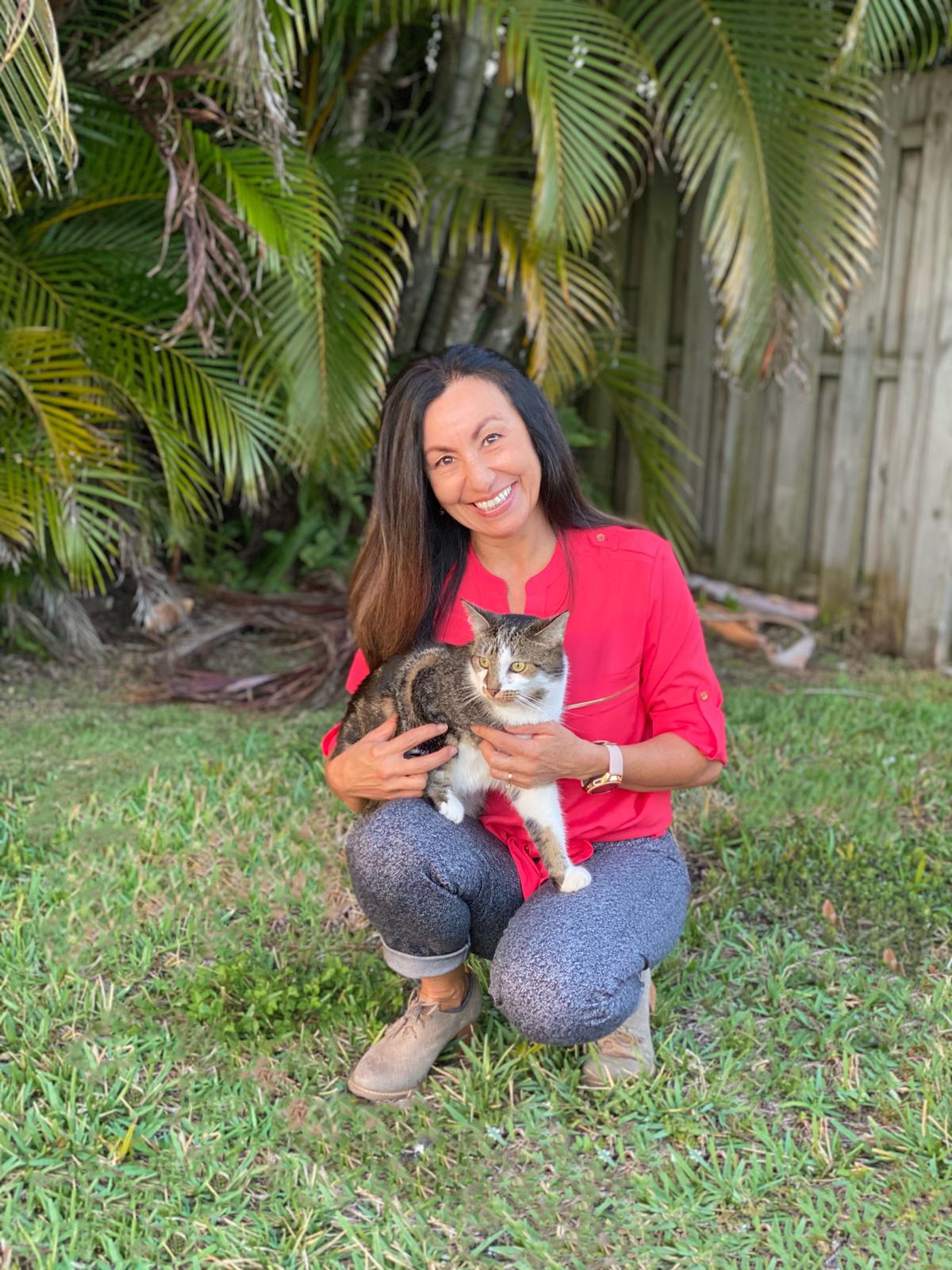3689 SE Cove Rd., Stuart, FL 34997
Our Services
- Additional Services
- Medical Bathing
- Boarding
- Heartworm Prevention
- Vaccines
- Imaging
- Nutritional Counseling
- Surgical Services
- Wellness Exams
- Dentistry
- Complete Medical Assessment
Tonometry
An often over-looked aspect of animal companion well-being is eye health. At Stuart Sound Animal Hospital, we employ professional eye care specialists to ensure that your pet’s eyes get the tender loving care they need and deserve.
One way to assess eye pet health is through tonometry, a procedure that measures intraocular pressure, or IOP, the fluid pressure inside the eye. This test is used to determine your pet’s risk of developing glaucoma, a serious eye disease that, if left untreated, can cause permanent vision loss.
Our experts use tonometry to pinpoint whether your pet’s eye is draining fluid correctly. If the fluid drains too slow, harmful pressure builds up, damaging the optic nerve. Over time, such damage can lead to blurry vision and even blindness.
Cardiology
Although found more often in older pets, heart conditions can affect pets at any age. Heart disease is usually a life-threatening health issue, but early diagnosis and appropriate therapy can extend your pet’s life. If caught soon enough, some forms of heart disease can even be cured.
Heart disease can lead to congestive heart failure (CHF), which occurs when the heart can no longer pump blood effectively. If an animal is suffering from CHF, fluid accumulates in and around the lungs and sometimes in the abdomen.
Heart disease has many origins and can be congenital (animal is born with the problem), valvular (abnormalities of heart valves), arrhythmias (disturbances in heartbeat rhythm) and caused by heartworm disease. All can eventually lead to CHF.
It’s important that you be aware of the symptoms of heart disease, especially if your pet is a senior, a breed that is predisposed to cardiac issues, or has a congenital problem. Symptoms include:
- Rapid breathing
- Coughing
- Loss of appetite
- Lethargy/tires easily
- Weakness/trouble exercising
Many heart problems can be detected through a physical exam, though additional tests will be required to obtain a definitive diagnosis and cause. Those tests may include an electrocardiogram (ECG), radiographs (X-rays), and ultrasounds.
Endoscopy
Endoscopy is a minimally invasive procedure that aids us in the diagnosis of disease and in emergency situations. Itallows us to view inside your pet’s body and visualize the organs and internal systems without performing surgery.
Endoscopy involves the use of small cameras, which can be guided throughout your pet’s body via small incisions or naturally existing orifices, such as the nose, vagina, bladder, and ear way. Endoscopy is most often used to diagnose issues of the gastrointestinal tract, but, by fitting the cameras, or endoscopes,with specialized instruments, we can even take biopsies when appropriate.
Most pets go home the day and usually do not experience pain or discomfort following the procedure.
Dermatology
Your pet’s skin is like a road map, providing crucial clues to his or her overall well-being, and because ear and skin issues are so common in both cats and dogs, our Stuart Sound Animal Hospital team has made dermatology a top priority and key area of study and expertise.
It is important to identify the initial signs and symptoms of allergies and dermatological conditions before they become more serious concerns. These symptoms include:
- Inflamed ears
- Hotspots, especially those that recur
- Scratching
- Rubbing the eyes or mouth area
- Flaking
- Skin lesions
- Hair loss
- Red itchy bumps on the skin
- Asthma-like wheezing or respiratory issues
If your pet is exhibiting any of these signs, please get in touch with us to schedule an exam. Chances are very good that the problem isn’t skin deep. Common culprits behind the above symptoms are skin or ear infections; allergies to fleas, environmental antigens, or dietary ingredients; microscopic mites; ringworm; endocrine issues; and a weakened or otherwise compromised immune system. Left untreated, such conditions can pose serious dangers to your pet’s health.
Tick Prevention
Like fleas, ticks love to treat your pet like an all-you-can eat café. They’re also well-known carriers of many harmful conditions, including Lyme disease.
In dogs, Lyme disease typically causes recurrent lameness, itself a result of joint inflammation, and general malaise. Other symptoms include depression, lack of appetite, enlarged lymph nodes, an arched-back stiff walk, difficulty breathing, and extreme sensitivity to being touched.
Cats aren’t as impacted by Lyme disease as dogs are, but they, too, can experience joint pain, lameness, and lethargy.
The good news is that Lyme disease is preventable, both by vaccine and with easy-to-administer preventatives that we sell both in our clinic and our online store.
Flea Prevention and Control
Fleas can really bug your pet, and, contrary to popular opinion, these pests aren’t just annoying. Fleas can transmit tapeworm and cause dermatitis, anemia, and hot spots, making your pet vulnerable to serious disease—even death.
At Stuart Sound Animal Hospital, we understand just how important it is to your pet’s overall quality of life to be flea-free. That’s why we carry a wide array of safe and effective flea preventatives in our and onsite pharmacies. Your veterinarian can help you choose the prevention that best suits your pet’s breed, size, and lifestyle. We can also help you control fleas in and around your home.
Pet Supplies
Have you checked out our online pharmacy recently? It’s a one-stop-shop where you can purchase everything from specialty foods to dental products, allergy remedies, supplements for your pet’s healthy coat, hip and joint medications, and training and behavior aids.
Our online store and onsite pharmacy carry only the best products for your best friend. Other advantages to buying directly from us include:
- Eligibility for manufacturer rebates
- A chance to support a local business
- Everything comes with the manufacturer’s guarantees intact
Endocrinology
Your pet’s endocrine system is similar to your own and consists of a system of glands (including the adrenal gland, ovaries, pancreas, parathyroid glands, pituitary gland, testes, and thyroid gland) that are the source of hormones that regulate the body. Diseases of the endocrine system include:
- Diabetes
- Cushing’s disease
- Hyperthyroidism (overactive thyroid)
- Hypothyroidism (underactive thyroid)
- Addison’s disease
- Estrogen deficiency urinary incontinence
Many of these conditions are life-threatening, so catching and treating them early is very important. Symptoms to watch for include excessive panting, skin issues, hair loss, dull coat, behavior changes, low energy levels, loss of appetite, increased urination and/or thirst.
Veterinary Specialist Referrals
As a full-service veterinary hospital, Stuart Sound Animal Hospital is ready to and capable of handling most of your pet’s needs onsite at our clinic. With that said, we’re also well positioned to refer you and your best friend to a highly qualified specialist should the need arise.
We have strong relationships with a wide variety of local specialists and specialty clinics devoted to the practice of oncology, ophthalmology, neurology, and other veterinary disciplines and can put you in touch the board-certified doctor who can best address your pet’s unique circumstances.
Rest assured that, if your pet is referred to a specialist, we will continue to play an active role in his or her care and will be in regular contact referral veterinarian so that important pieces of your pet’s medical history are taken into consideration when a treatment plan is finalized. We’re also more than happy to provide any after-care or rehabilitation services that might be required to help your pet make a full recovery.
For a more information or a consultation appointment, please call us at (772) 287-0024.
Medical bathing is about more than just making your pet look good--these services can help your pet feel better as well, assisting in controlling external parasites, soothing skin conditions, and keeping wounds clean after surgery or injury. Stuart Sound Animal Hospital is proud to offer a complete range of grooming services for dogs and cats of all shapes and sizes.
Our spa and grooming services include:
- Medicated and therapeutic bathing
- Nail clipping
- Ear cleaning
- Deshedding treatments
- External parasite control consultation and treatments
- Anal gland expression
Besides obvious cosmetic improvements, baths have medical benefits, which include:
- Decreases/soothes many skin conditions
- Prevents and eliminates parasites
- Seasonal hair removal
Our salon professionals are experienced with all breed-specific requirements, creating customized grooming programs for each individual client.
For more information on our grooming services, or to schedule your pet's appointment, call us at (772) 287-0024.
Going on out of town or on vacation? Let Stuart Sound Animal Hospital take the worry away! Our affordable boarding and daycare services are provided by highly trained team members who will care for your pet as if it were their own.
We offer clean, comfortable, and temperature-controlled environments for both dogs and cats. All pets in our care receive lots of attention, exercise and socialization and the facility is overseen by our veterinary staff.
All pets are required to be current on vaccinations including rabies, distemper, and other species-specific shots. In general, we prefer that such vaccinations be administered at least two weeks prior to boarding.
Our boarding guests enjoy safe, clean facilities under the supervision of our dedicated, experienced staff. The best part is you’ll have peace of mind knowing that a doctor is just steps away if your pet needs veterinary care. Give us a call at (772) 287-0024 to reserve your pet’s place today!
Heartworm is a nasty disease affecting our pets, and mosquitoes transmit it from animal to animal. As the name suggests, heartworms live in the heart, and they can also thrive in the lungs and blood vessels. Because they constrict blood flow, they can damage internal organs and cause lung disease and heart failure.
If your dog contracts heartworms, there is a treatment regimen, but it’s harsh and expensive. Currently, there is no cure for cats.
It only takes one bite to infect your pet with heartworm. The good news is there are a number of steps you as a pet parent can take to decrease your pet’s exposure to mosquitos, including:
- Keeping your property free of standing water
- Cleaning your pet bowls weekly to eliminate the presence of mosquito eggs
- Turning over or covering all recycling bins, buckets, or trash cans
You’ll also want to make sure to keep your pet on heartworm preventative all year round. We carry several effective and affordable heartworm preventatives in our hospital pharmacy and online. We also include a heartworm test in every annual wellness check.
Do you need to stock up on your pet’s favorite heartworm preventative? Is it time to schedule a heartworm test? Give us a call at (772) 287-0024.
Vaccines are your pet’s best defense against a wide array of preventable disease. Some vaccines are considered core vaccines and should be administered to all pets, whereas other vaccines are optional and may be recommended for pets based on a variety of factors, such as their risk for exposure to disease. Vaccine recommendations can also change throughout a pet’s life, as travel habits and other variables change. We will consider all these factors as we determine which vaccines your pet should have.
We understand that your pet is unique and that no single vaccine program will be ideal for every pet in every situation. Our doctors and other staff members are well-educated about veterinary vaccines, and our goal is to give you the best advice for keeping your pet healthy. Let us develop a vaccination schedule and ongoing booster routine that accounts for your pet’s lifestyle, overall health, risk for exposure to infectious disease, and other factors.
If your pet is overdue for their shots, give us a call at (772) 287-0024 to schedule an appointment today.
Radiology, the science of using radiographs or X-rays, to diagnose various internal issues in pets, is a valuable tool in veterinary medicine. As we continually strive to offer the highest quality medicine and diagnostic testing, we are pleased to offer radiology services as a means of providing excellent care to our patients.
Radiography can be used to evaluate almost any organ in the body, including the heart, lungs, and abdominal organs, as well as the bones.
Radiography is painless, safe, and completely non-invasive, and it uses only very low doses of radiation. Because the level of radiation exposure needed to perform radiography is very low, even pregnant females and very young pets can undergo radiography.
Ultrasonography
Ultrasonography is a powerful diagnostic tool that creates an ultrasound, or a real-time image of an animal’s body. This composite reveals important information about internal processes including the circulatory, skeletal and gastrointestinal systems.
When used in conjunction with other diagnostic tools like X-rays, ultrasounds can help identify disease, blockages, skeletal fractures, soft tissue damage and other internal injuries.
An ultrasound works by broadcasting high-frequency sound waves that reflect off your pet’s internal structures. A small probe held against the skin collects the returning signals to create an image of the internal body, most commonly used to examine abdominal organs like the stomach, kidneys, liver, spleen and gallbladder. An ultrasound of the heart, known as an echocardiogram, provides precise information about heart valves, blood flow, chamber size and contractions.
Completely painless and non-invasive, ultrasounds usually require some sedation because the patient must remain completely still. Stuart Sound Animal Hospital employs advanced imaging technologies guaranteeing the highest quality of care for our patients.
Our diagnostic suite is staffed by caring, skilled professionals who will provide state-of-the-art care with compassion and expertise. Call (772) 287-0024 to learn more!
Ever heard the expression that “you are what you eat”? Well the same is true for our pets. A nutrition-rich diet is your pet’s first line of defense and a cornerstone of preventive care. Proper daily nutrition will go a long way in keeping your pet healthy by bolstering the immune system and supporting normal development in younger animals.
Every pet’s nutritional needs are different, based on age, breed, health conditions and lifestyle factors—which can make choosing the right pet food complicated. For example, larger breed dogs have different nutritional needs than smaller breeds, and puppies and kittens should eat much differently than most adult dogs.
At Stuart Sound Animal Hospital, our veterinarians and staff can take the guesswork out of feeding your pets by advising you about what’s right for your animal.
Have questions or concerns about what your pet is eating? Call us (772) 287-0024.
Neutering
Neutering is performed on male cats and dogs. This process castrates the animal, removing their testicles and making them unable to impregnate females. Neutering is advised when your pet is 4-6 months old but can be performed on older animals as well.
Benefits include:
- Placates the animal, reducing aggressive behavior and decreasing dominant tendencies
- Reduces roaming and spraying (territory marking)
- Eliminates the risk of testicular and prostate tumors
Although less invasive than spaying, neutering is still a major medical procedure that requires some recovery time. Recovery may also include pain medication and lethargy is common for the first couple days following the procedure. It’s extremely important that you monitor your pet to prevent the animal from licking or biting the incision to reduce the risk of infection.
Spaying
Spaying (ovariohysterectomy) is a common surgical procedure performed on female cats and dogs and involves removing the patient’s uterus, ovaries and fallopian tubes, rendering the animal incapable of reproduction. Stuart Sound Animal Hospital veterinarians recommend spaying your pet at 3-6 months, depending on your dog’s breed and ideally before the patient’s first heat.
Benefits include:
- Prevents unwanted pregnancies
- Eliminates the risk of ovarian and uterine tumors
- Remove the possibility of uterine infections
Spaying is a major surgery requiring 7-10 days of recovery time. Recovery may also include pain medication and lethargy is common for the first couple days following the procedure. A small, green tattoo is applied post-surgery that signifies that the animal is spayed should she ever get lost or taken to a shelter.
Anesthesia
Pain Management and Control
Just like people, pets can suffer lingering effects and discomfort from injury or a surgical procedure.
Stuart Sound Animal Hospital takes treating pain seriously and offers several options to help pets feel better, including medication and alternative therapies. We’ll develop a pain management program that’s customized for your pet’s condition and needs.
Patient Monitoring
Many pet parents are concerned when their pets haver surgery or another procedure that requires anesthesia.
As always, your pet’s safety and comfort is our main priority. While there is some degree of risk with any medical procedure, we utilize the safest available anesthetics and require pre-operative blood testing to ensure that your pet is healthy enough to undergo anesthesia.
We closely monitor all vitals to make sure your pet is safe and unharmed while he or she is under anesthesia, including heart activity, ECG, blood pressure, oxygen saturation, respiratory system, and temperature.
In addition, our experienced medical team provides skilled pain management during and after all surgical procedures, to see that your pet recovers quickly and with minimum discomfort.
General Anesthesia
General anesthesia is what is often referred to “putting someone under.” While we understand that many pet parents become nervous when they hear the word “anesthesia,” we can assure you that our highly trained and experienced team takes every precaution to protect your best friend prior to, during, and after anesthesia.
Before administering general anesthesia, we will, of course, conduct a thorough physical exam and the requisite bloodwork to determine that your pet is healthy enough to be put under.
Once your pet is cleared for anesthesia, he or she will be injected with a short-acting agent that leads to a loss of consciousness. We then insert a soft plastic tube into your pet’s windpipe through which oxygen and other gasses will flow. Anesthetized pets and their vital signs are monitored constantly during any and all procedures so that, in the unlikely event of an adverse reaction, we can respond to it immediately.
Have questions about general anesthesia prior to your pet’s appointment? Don’t hesitate to give us a call at (772) 287-0024.
Local Anesthesia
Local anesthesia refers to the one-time injection of medication meant to numb a particular area of your pet’s body. We might employ “a local” when giving your pet stiches or performing a biopsy or bone repair.
In contrast to general anesthesia, your pet will be awake the entire time, and, while he or she might feel some pressure at the injection site, there should be no significant pain or discomfort. Side effects are very rare and usually mild.
Our surgeons have experience in both procedures and will consult with you about the preferred method for your pet. The best surgical option for your dog will generally depend on size and age. To learn more about our surgery offerings or to schedule a consultation, give us a call at (772) 287-0024.
Whether your pet is a youngster, a “senior citizen,” or any age in between, wellness examinations provide an excellent opportunity for us to conduct a thorough physical examination and develop a health profile for your pet. This information will help us identify medical problems and any other issues that can affect your pet’s health and quality of life.
A wellness examination includes an evaluation of all of your pet’s major organ systems. We’ll use the wellness visit to ask you questions about your pet’s behavior, appetite, exercise habits, and regular activities at home. This is also an excellent time for us to discuss any routine diagnostic testing that may benefit your pet or to recommend any vaccinations that may be due.
If it’s been over a year since your pet’s last head-to-tail checkup or if they’re due for their shots, give us a call at (772) 287-0024 to schedule an appointment today.
Chew on this: the majority of dogs and cats show some signs of dental disease by the tender age of three. And that’s no laughing matter. Tooth decay, gingivitis, and plaque and tartar build-up can lead to heart, liver, and kidney problems.
At Stuart Sound Animal Hospital, we offer professional ultrasonic cleaning, scaling, polishing and fluoride treatments. We also strongly recommend preventative measures like teeth brushing (using special enzymatic toothpaste), oral rinsing, and special tartar-preventing diets.
Our other oral services include:
- X-Rays
- Tooth extractions
- Minor oral surgery
Periodic dental exams help maintain proper oral hygiene and prevent future problems, especially if you have a pet who won’t tolerate brushing. Interested in learning how to brush your pet’s teeth? Call us at (772) 287-0024 and our veterinarians will be happy to help you get started!
We will want to administer a complete medical assessment in the unfortunate event that you have to bring your pet in for a sick visit.
These assessments, which include a head-to-tail physical exam, as well as blood, urine, and other diagnostic tests, are aimed at diagnosing your pet as efficiently and accurately as possible so that your pet gets relief – and you get peace of mind – that much sooner.
During a complete medical assessment appointment, your Stuart Sound veterinarian will examine not only your pet’s eyes, ears, and skin, but also their neurological, cardiovascular, respiratory, and skeletal systems for any irregularities.
If your pet is exhibiting a lack of appetite, lethargy, confusion, vomiting, excessive drooling, shaking or shivering, sudden lameness, or other worrisome symptom, give us a call at (772) 287-0024 to schedule a medical assessment.
We understand that a pet is part of the family. The day your pet enters our hospital it becomes part of our family, too—and our goal is to give them as many happy, healthy years with you as possible. From new puppies and kittens to graying seniors, we’ll be there every step of the way with comprehensive services and the experienced, compassionate care your pets deserve.






